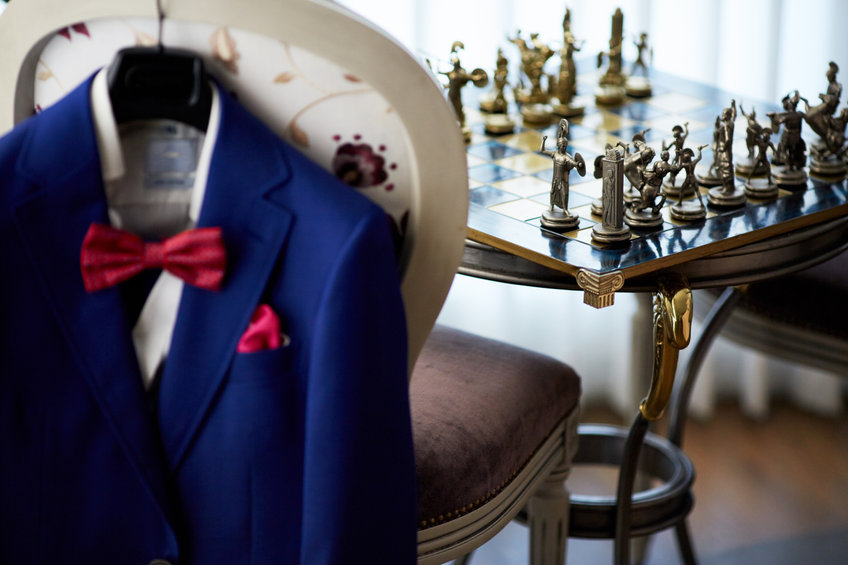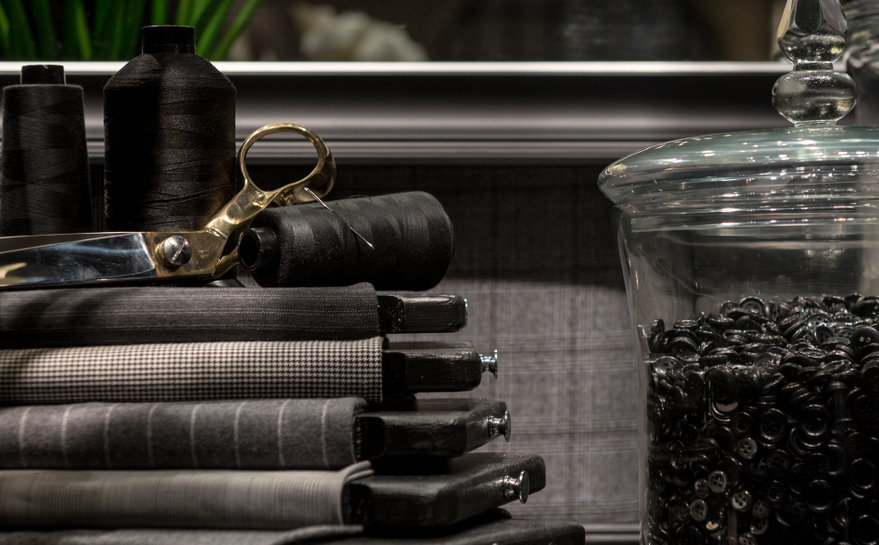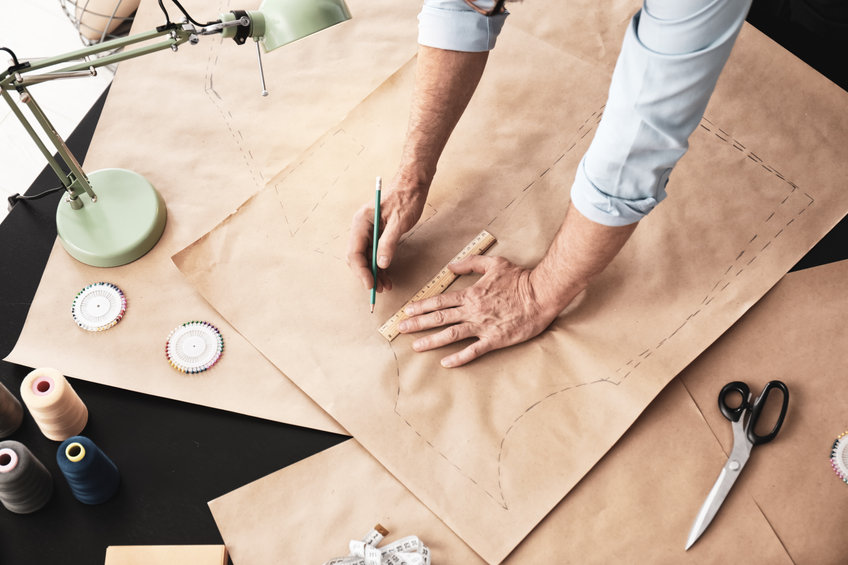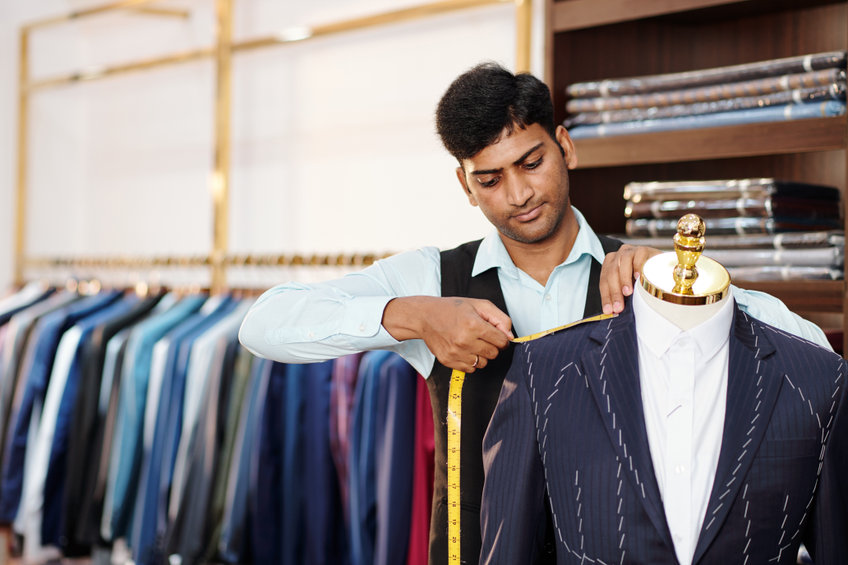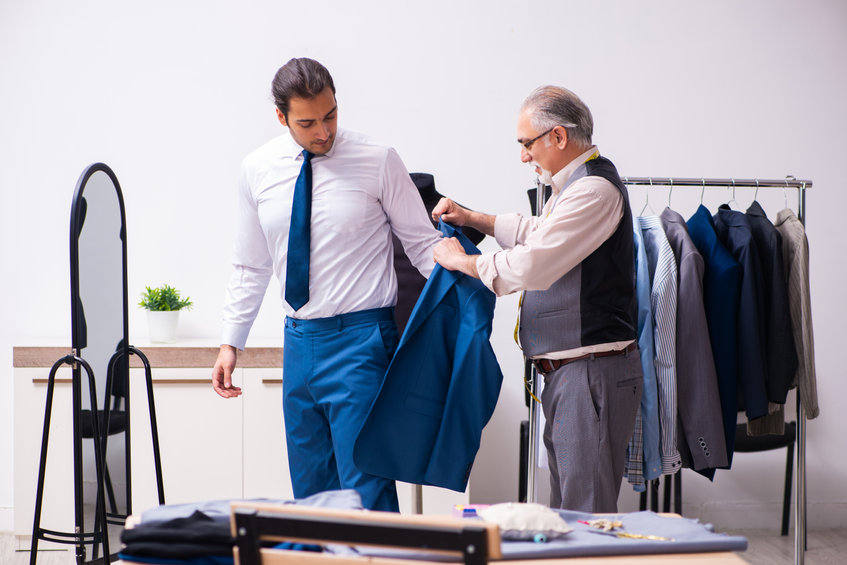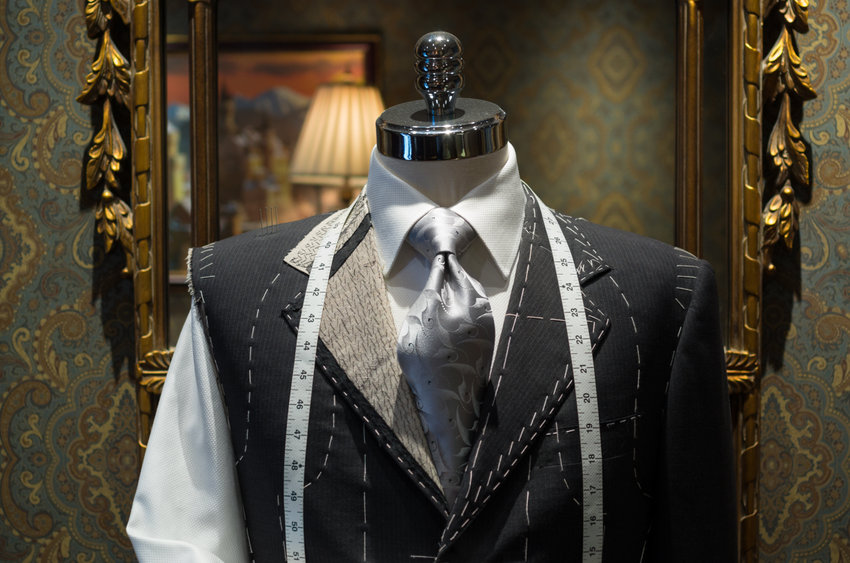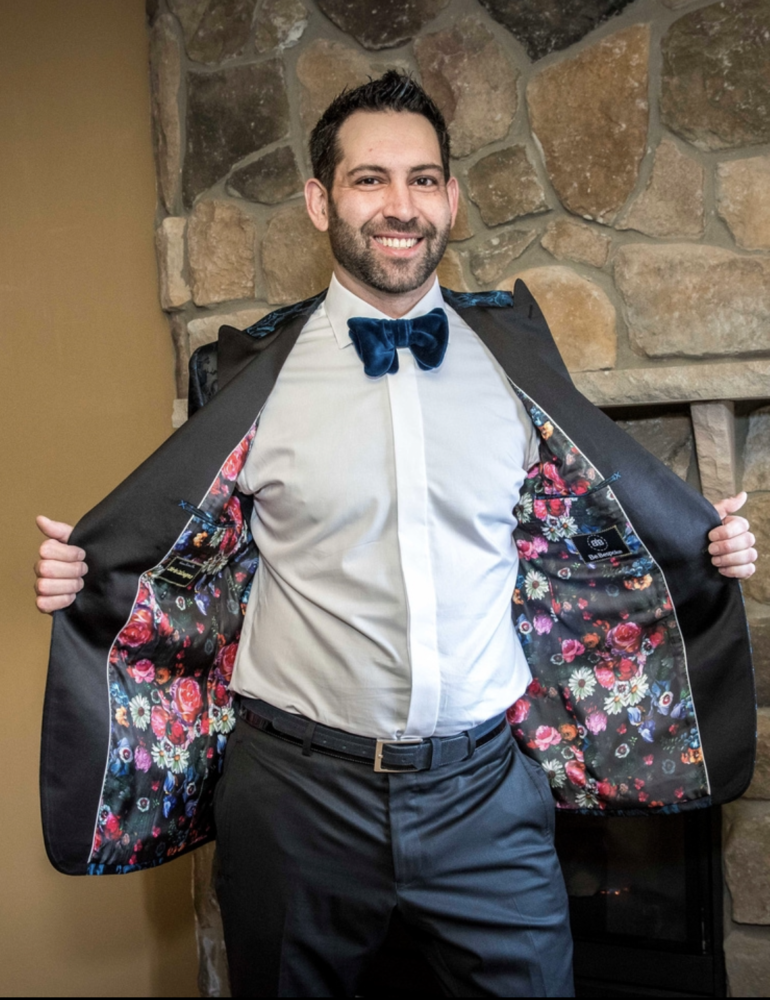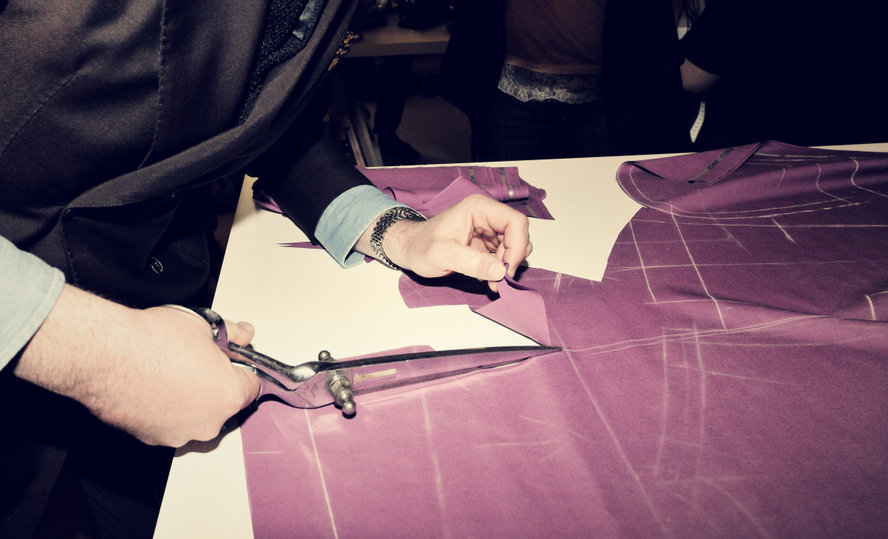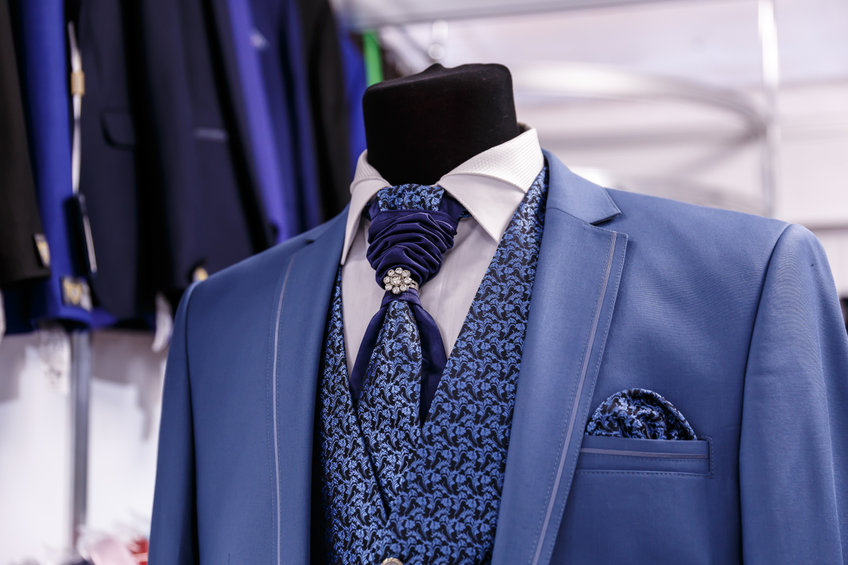How To Make a Great Impression With Your Suit Color
Whether you’re preparing for a job interview, having lunch with a new client, or going on a first date, first impressions matter. A key aspect of first impressions is the color you present to others through your clothing. But does clothing color really affect how you’re perceived by those you meet for the first time?
Color creates certain long-term subconscious cues in others as to how they should regard us. These impressions are impacted beyond the level of individual psychology to social psychology, where certain hues are associated with people that we have seen in powerful positions or in leadership contexts.
Be Bold
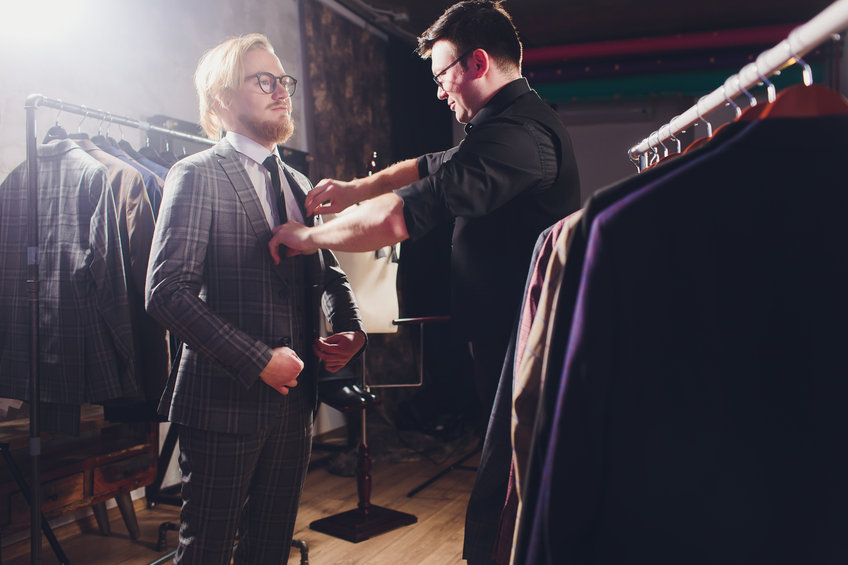
If you want to convey confidence and authority to those around you, it’s best to wear strong, vivid, and bold colors. This approach can be accomplished from multiple different angles.
You may choose to wear a solid yellow tie, for example, to demonstrate a confident and fun-loving demeanor. Or if you wish to convey bold authority, leaning towards darker colors would do the trick.
Be Approachable
Maybe the first impression you’re going for is a friendly and approachable vibe. You want a prospective employer, for example, to feel comfortable around you. You want them to know how friendly and easy-going you are.
Choosing a look with bold colors and zany patterns may not be the best choice in this case, as those may serve to be intimidating or off-putting to some. Instead, try wearing softer colors. Light, soft colors are often seen as more inviting and less in your face. Light greens, yellows, blues, and coral are some such colors with a friendlier appeal.
The Psychology Of Color
There have been countless studies led on the effect that color has on one’s mood and psychology. Each of them has proven various things about the power of color, but they all prove one thing: Color has a profound effect on human emotion and initial impressions.
Here is what each of four common suit, coat, or dress shirt colors says about you, in terms of the qualities or values they suggest:
Leadership – Black
Black is powerful and aggressive. It sends a message that you are a leader or have control. Black is a key color in the fashion world that is often associated with stylishness. Fashion writer Samantha Kemp suggests contrasting black with a bright tie or flash of color in a handkerchief. Black can be intimidating to those you meet, so be aware that it may not be easy for others to engage with you. However, you can use it to underscore your prominence and to appear debonair or glamorous. Style writer Antonio Centeno cautions that black is a better choice for those with darker hair and darker complexions. For someone with fairer features and lighter hair, black can be overpowering.
Teamwork – Blue
Blue conveys a sense that you have high self-esteem – that you believe in yourself. Research has shown that navy blue could ultimately be the strongest choice for a job-interview suit for this reason. Navy works well in an interview setting, says Kemp, because it comes across as professional and stable without having the dreariness that can be associated with black. When you walk into an important interview or event wearing a navy suit, you suggest important market values such as seriousness, diligence, and detail orientation.
Logic – Gray
When you wear gray, you convey a sense of independence. That tone of separation can be positive or negative, depending on how well you carry yourself when you wear it. Gray is the color of self-sufficiency and the ability to formulate thoughts and plans without external assistance. In fact, Kemp sees gray as tied with blue for the best possible suit color – adding that men and women will typically look better in darker and lighter shades, respectively. Centeno suggests that charcoal grey can help make someone look more experienced and mature.
Looking To Add New Suit Colors To Your Wardrobe?
Finding one suit that fits is hard enough, never mind finding a variety of suits in different colors. But with a quality Bespoke suit, our team can put together a custom-sized suit with a variety of colors and fabrics, in a breeze.
If you’re looking to spruce up your suit collection, and are in need of a quality suit, consider contacting us. At BBespoke, our reputation is based on an uncompromising dedication to craftsmanship and personal services.

